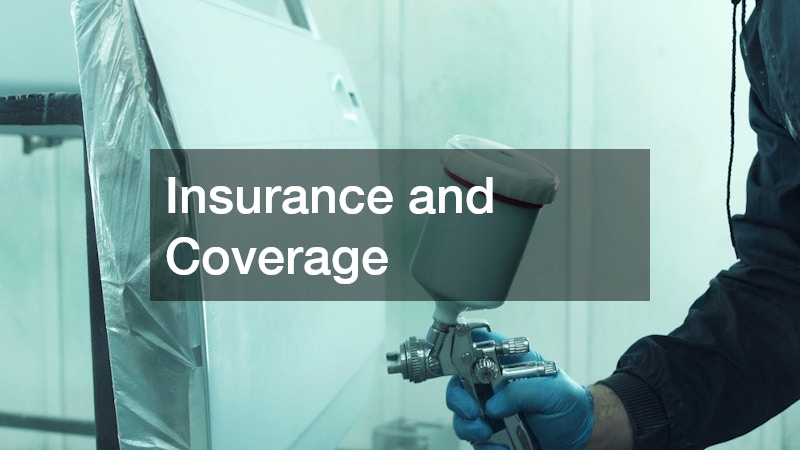Auto body repair is a crucial service needed by vehicle owners to maintain the aesthetic and functional aspects of their cars following damage. Whether dealing with minor scratches or extensive collision repairs, understanding the process, cost, and quality of service can greatly enhance the experience and outcome for car owners. Informed decisions regarding repairs lead to better maintenance and longevity of vehicles, contributing to overall safety and aesthetics.
How Much Does Auto Body Repair Cost?
Factors Affecting Repair Costs
The cost of auto body repair is influenced by several key factors, starting with the extent of the damage. Minor repairs like small dents can be relatively inexpensive, whereas full structural repairs due to severe collisions are more costly. Additionally, the make and model of the vehicle significantly affect the price of parts and materials needed for repairs.
Another crucial cost factor is labor, as the expertise required for meticulous restoration can vary greatly. High-end vehicles often require specialized technicians, resulting in higher labor costs. Geographic location also plays a role, with urban repair shops generally charging more than those in rural areas due to differing operational expenses and property costs.
Understanding these variables aids car owners in anticipating repair costs and planning their finances accordingly. Factoring in these elements helps avoid unexpected expenses and allows for more effective budgeting. Transparency in these cost factors is essential for maintaining trust between the repair shop and the client.
Average Cost Estimates
While individual repair costs can vary greatly, some average estimates can provide a useful benchmark. For example, minor cosmetic repairs such as basic paint jobs or small dent removals might cost anywhere from $50 to $200. On the higher end, extensive collision repairs involving frame straightening or replacement panels could range from $500 to several thousand dollars.
Bumper replacements tend to cost between $300 and $700, depending on the vehicle’s make and model. Windshield replacements often hover around the $200 to $700 range, heavily dependent on the type of glass and whether the vehicle features built-in sensors or similar technology. Being aware of these figures helps car owners develop realistic financial expectations.
Overall cost estimates serve as a preliminary guideline but should not replace a professional assessment from a certified repair shop. Personalized quotations based on detailed inspections offer the most reliable financial outlook. It is crucial for car owners to seek these evaluations to understand the specifics of their repair needs accurately.
Insurance and Coverage
Insurance and coverage play a significant role in managing auto body repair costs, often covering a substantial portion of expenses. Collision and comprehensive insurance policies typically provide coverage for a range of damages, from accidents to natural disasters. Understanding the terms of these policies is crucial to maximize coverage and minimize out-of-pocket expenses.
Car owners should be aware of deductibles and how these impact the amount reimbursed by insurance companies. Choosing a repair shop that works directly with insurers can streamline the process further, allowing for quicker payment and fewer administrative burdens. Insurance companies may have preferred repair networks, offering negotiated rates and guaranteed services that benefit policyholders.
The competencies of an auto body repair shop can be assessed by verifying their certifications and licenses. Reputable shops should hold certifications from recognized organizations, such as the National Institute for Automotive Service Excellence (ASE). Holding these credentials demonstrates the shop’s commitment to adhering to industry standards and providing quality service.
Licensing requirements vary by location, but legitimate shops should comply with all local regulations. These requirements often include safety inspections and adherence to environmental standards in their operations. Knowing that a repair shop is licensed reassures customers of its professionalism and accountability.
Car owners should not hesitate to request proof of certifications and licenses during initial consultations. This practice ensures transparency and instills confidence in the shop’s abilities. Maintaining a diligent approach here protects a vehicle owner’s investment and guarantees they are receiving competent service.
Evaluating Guarantees and Warranties
Warranties and guarantees offered by auto body repair shops provide essential protection for car owners. These commitments assure customers that any issues arising post-repair will be rectified without additional costs. A reliable repair shop should clearly outline the terms, duration, and coverage of their warranties to avoid any future misunderstandings.
Guarantees often cover specific aspects of repairs, such as paintwork or parts replacement, ensuring these components hold up under normal use. Warranties serve as an indicator of the shop’s confidence in the quality and durability of their work. Longer warranty periods generally reflect higher confidence levels and enhanced peace of mind.
Evaluating the details of warranties and guarantees is crucial in selecting a trustworthy repair shop. Customers should inquire about comprehensive coverage details during their initial consultations to ensure their interests are fully protected. This diligence contributes to informed decision-making and the long-term reliability of repairs made.
An informed approach to auto body repair can significantly enhance the outcomes and overall satisfaction of vehicle owners. By understanding the scope of repairs, costs involved, and selecting a reputable repair shop, drivers can ensure their cars are restored efficiently and effectively. Taking the time to research and prepare for potential repairs not only preserves the vehicle’s value but also provides peace of mind on the road.
.


